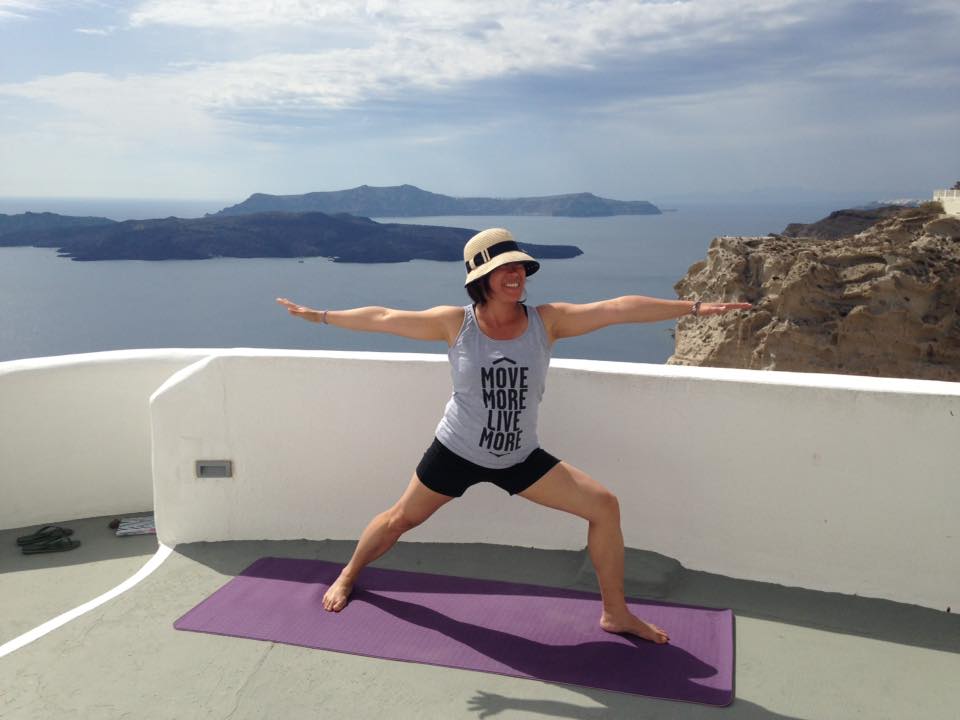What is Isvarah Pranidhana – the practice of dedication and surrender
We have all heard of yamas and niyamas at some point in our journey. Yamas are the first while niyamas are the second of the eight limbs of yoga. We already know that but, have you heard of Isvarah pranidhana?
Isvara Pranidhana, pronounced ‘Ish-va-ra-pra-nid-hah-na’ is the very last of the niyamas of Patanjali’s Yoga Sutras.
– The act of surrendering our ego to a higher source whatever it might mean to us: a god, a very special person, nature or our pure consciousness, which then frees us from pain, suffering, stress, anxiety and afflictions of the mind. The state of yoga.
In the Yoga-Sutras of Patanjali these verses explain what it means.
(1.23) Samadhi is attained by devotion with total dedication to the Supreme Being.
(I.24) Isvarah is described as a special being because he/she is not affected by the negative action or result as well as the feeling left by the result of the action.
(I.25) Isvarah is the seed of unlimited knowledge.
(I.26) It is in all places at one time, no boundaries, no limitations, unaffected by the restrains of time. Having these qualities means Isvara is the teacher of all ancient teachers.
(I.27) His sound is the pranavah (the syllable OM). The word “OM” symbolizes the concept of Ishvara.
(I.28) When OM is repeated while contemplating on its significance, Isvara Pranidhana will be well established.
(I.29) If you do this, something in your consciousness will be revealed and obstacles will be destroyed.
The practice of Isvarah Pranidhana, the art of surrender.
Isvarah Pranidhana is practiced in and from the heart. On and off the mat we can take this practice with us. As the song goes “Let it go, let it go..” how easy is it to actually do?
My personal experience
I have a personality that likes to control each situation as well as the resultingaction. We all know that this is impossible to do each time and even then it is not in our best interest to want to control everything. At the end of the day we are worn out, possibly miserable if the results are not what we expected.
Each one of us wears many hats:
As a mother to a young child there is a lesson to be learned in going with the flow, being flexible to what is possible at that moment and letting go of our expectations of our child or trying to be a perfect parent. How many times have I planned a trip days on end only to cancel it at the last minute due to an illness, a tantrum or simply a toilet accident? Sometimes I wonder why I even bother making plans. To live in the moment, to do as and when we please – these are important reminders especially when children are involved.
As a yogi when I feel that my body is not ready to do a certain pose, do I push myself to do it because I am an advanced student? “For God’s sake I am a teacher, this pose should be easy!” I hear my ego saying. It is not a sign of weakness when I consciously take the gentle route when feeling low in energy or maybe even suffering from pain or bodily stiffness from not having had time to practice regularly. I should acknowledge and respect that to allow myself to take a step back. Hey I say this to my students all the time, why not I? Walk the talk.
“For God’s sake I am a teacher, this pose should be easy!” I hear my ego saying.
As a retreat/holiday organizer I face numerous challenges when dealing with various clients, vendors and booking website support staff. Most recently I have had to cancel a handful of retreats and trips due to low numbers where I incurred large cancellation charges. Canceling a trip is not a problem for me as it gives me a chance to evaluate the whys, however, when I have to pay money upfront and be charged even more due to a cancellation, it hurts a lot. I am sitting here thinking should I cry over the spilled milk or should I move on and charge it to experience.
Luckily I also have trips that do happen BUT I can only do as much planning, as I like. If anything should go wrong I would have to wing it and think quickly on my feet. As I say to my participants when something goes wrong I will try my best to solve it. If I cannot, I will find somebody who can. If it still cannot be solved, let us
try another option. You get the point. There are so many things that go wrong that we have no control over. The important thing is we can still smile or even laugh about it and get on with it.
A tip to practice surrender every day.
I leave you with the Serenity Prayer to guide you, remind you of the easiest way to practice surrender.
“God grant me the serenity to accept the things I cannot change, the courage to change the things I can, and the wisdom to know the difference.”





